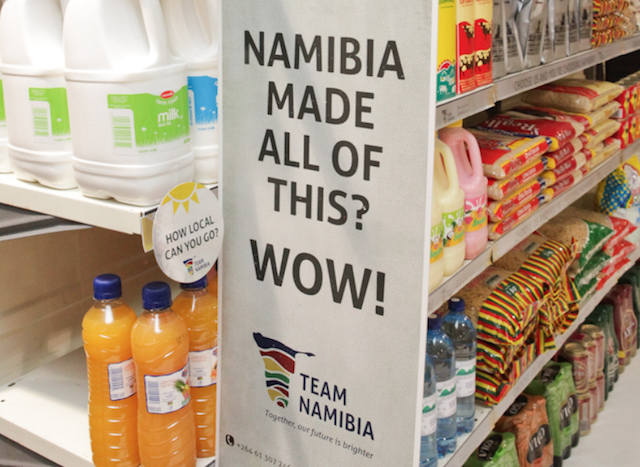NAMIBIA’S economic woes demand increased support for local businesses, in particular the manufacturing sector, enhancing local consumption and consequently increasing the export capacity of the country.
This was said by Bärbel Kirchner, account director of Team Namibia, when she welcomed Namib Mills and its subsidiaries Namib Poultry Industries and Feedmasters back as Team Namibia member.
As an organisation that promotes Namibian products, Team Namibia encourages increased consumption of Namibian products and services locally and abroad.
Kirchner said Team Namibia recognises the importance of highlighting the absolute necessity among consumers, businesses and government institutions that local businesses must be supported for Namibia to thrive and to work towards sustainable economic development.
She noted that one of the key issues that local producers, especially in the dairy and poultry industry are facing, is having to compete with cheap imports.
Thus, without any regulatory protection against high volumes of imports, Namibian producers and manufacturers cannot effectively compete, irrespective of the type of production.
“Namibian businesses mostly have to be content with very small markets. Without being able to secure sufficient economies of scale, the cost of production remains high,” Kirchner stated.
In addition, the lack of restrictions or limited restrictions on imports affects local producers who do not have the certainty of a consistent demand for local goods without regulatory control on imports.
The government’s approach since independence has been attracting foreign investors to invest in the country, to increase the overall production, solve unemployment, leading to the country coming up with a tailor-made foreign investor policy called the Export Processing Zone (EPZ) regime.
The EPZ offered tax and import duty waivers for those who took it up, and lower utility costs as a way of the country’s industrialisation agenda.
However, the plan did not live up to its hype and aim as its 19 beneficiaries only managed to invest N$11,6 billion, created a mere 2 345 jobs, and got the country blacklisted by the European Union as a tax haven.
Plans are underway to scrap the whole plan, and introduce a more comprehensive policy which will cater for all investors.
Pieter van Niekerk, commercial manager of the Namib Mills Group, said: “For any industry, it is important that we create sufficient local demand for locally produced goods and services. This will help us to create profitable businesses, create employment, and contribute to the overall upliftment of our people”.
He added that it makes sense – economically, morally and socially – to support local businesses by creating the right regulatory environment.
Van Niekerk noted that collectively, the country can make a difference in supporting local businesses, and Team Namibia needs all the support it can get to further spread the message in the current economic environment.
“We need to replace imports in every sector of our economy, and grow exports,” he stated.
The International Monetary Fund earlier this month warned commodity-producing nations which rely on the global manufacturing sector for foreign currency to find other ways, as the world’s manufacturing sector is slowing down, signalling declining demands for raw material.
Finance minister Calle Schlettwein told The Namibian last week that no matter how much money the government releases into the economy, the impact will always be diluted, as a huge chunk of that money will flow out of the country through imports, as Namibia’s manufacturing sector is lagging behind.
Stay informed with The Namibian – your source for credible journalism. Get in-depth reporting and opinions for
only N$85 a month. Invest in journalism, invest in democracy –
Subscribe Now!







